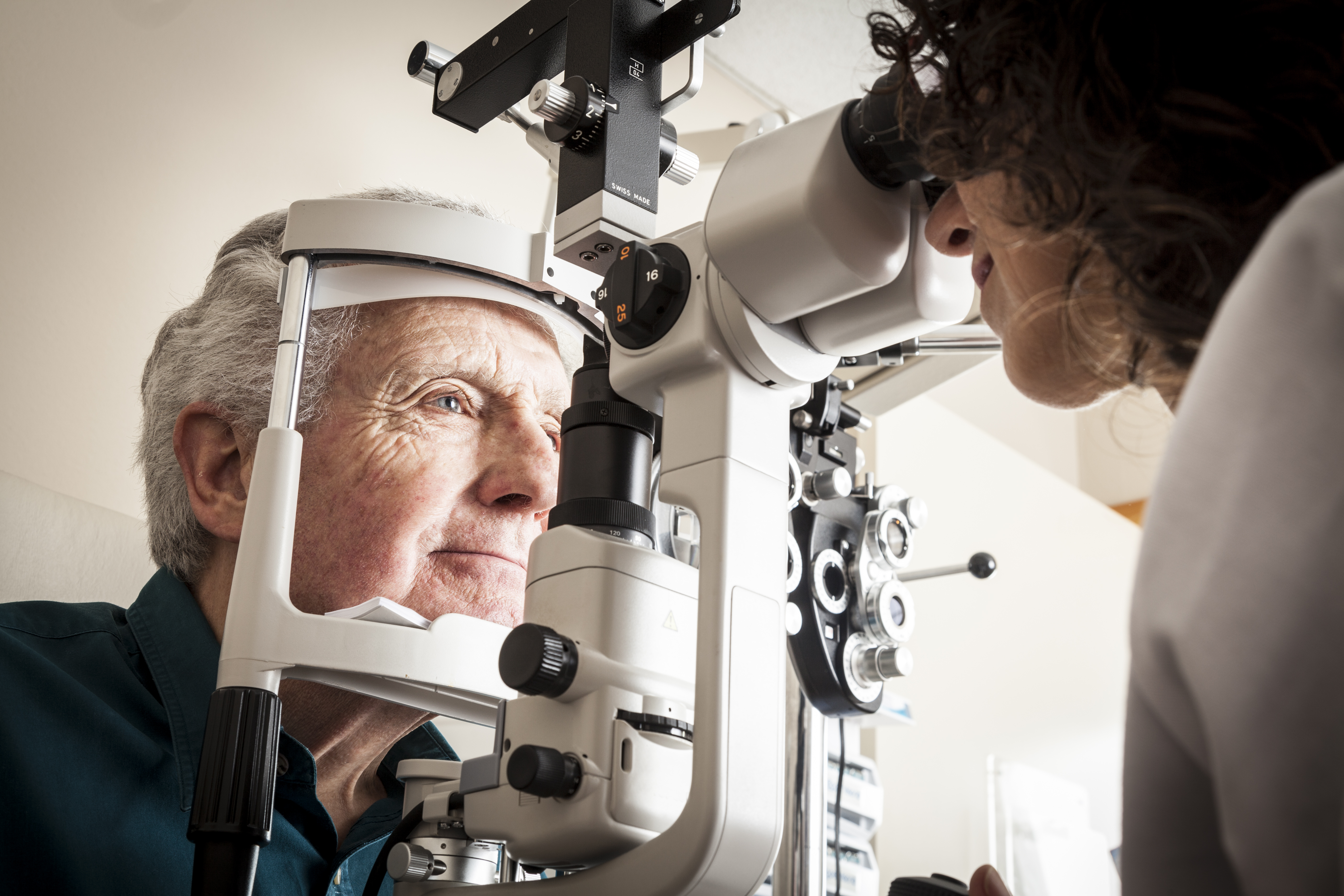The impact of stroke on vision. Here's what you should know.

May is National Stroke Awareness Month, an important time to raise public awareness about a condition that causes parts of the brain to stop functioning properly and which occurs every 40 seconds in the U.S.
We recently spoke to Dr. Padmaja Sudhakar of the Kentucky Neuroscience Institute and UK Advanced Eye Care about how a stroke can impact a person’s vision, how changes in vision could be warning signs of a stroke, and how UK HealthCare can help.
How does a stroke impact your vision?
The visual pathway is very long and goes from the eyes to the occipital lobe, which is the region in the cerebral hemisphere that processes vision. Since the visual pathway goes through the cerebral hemisphere on each side, stroke affecting certain areas of the cerebral hemisphere will impact the visual pathway and produce visual field loss.
Patients will notice missing areas in peripheral vision. In a bilateral occipital lobe stroke, a patient may experience profound loss of vision in both eyes.
When the carotid artery in the neck or in the head is blocked from a clot, this clot may spread to the artery supplying the retina and can cause vision loss.
There are certain areas in the brain which operate as perceptual segments of the visual pathway. When this is affected through stroke there may be impaired visuospatial function, impaired visual attention or deficits in visual recognition.
When the brain stem is affected, a patient may experience double vision since it can affect cranial nerves that control eye movements. Eyes will be misaligned in such cases.
Stroke can sometimes cause darting movements of the eye called nystagmus. Some strokes can cause unequal pupils.
Are there warning signs of a stroke that impact your eyes?
A person should be concerned about stroke if there are the following symptoms:
- Transient loss of vision in one or both eyes
- Sudden severe vision loss in one or both eyes
- Missing areas in the peripheral field
- Right or left sided loss of peripheral vision
- Double vision
- Symptoms of dizziness
- Darting eye movements
How is your vision related to your brain?
Visual information is processed by the brain, so the majority of disorders involving the brain, including stroke, will impact vision.
The eyeballs and the optic nerves which carry the visual signals from the eye to the brain are actually an extension of the brain.
What should I do if my vision is impacted by a stroke?
If you experience the above symptoms seek immediate attention. Do not wait for symptoms to resolve or improve on their own. You should get your eyes urgently checked with your local eye doctor. If you are unable to get an immediate eye exam, please get yourself evaluated in the nearest emergency room as soon as possible.
What can UK HealthCare Advanced Eye Care help patients that have visual difficulties following a stroke?
UK HealthCare Advanced Eye Care can help evaluate patients experiencing vision-based stroke symptoms on an emergency basis. They can then direct patients to the UK Emergency Department to be evaluated by the stroke team.
For visual difficulties following a stroke, UK HealthCare Advanced Eye Care offers a comprehensive eye exam that includes testing visual fields, double vision evaluation, and determines if the patient is eligible to drive after stroke. Some patients with double vision may be offered prisms in their glasses to correct double vision. In cases of permanent double vision, eye muscle surgery could be offered to correct eye alignment.
Is there anything else you’d like to include about stroke and your vision?
Patients or their family members should inform their neurologist about their visual difficulties. Many patients presume such difficulties are related to needing a change of glasses.
Getting a comprehensive eye exam following a stroke can be helpful. Getting a comprehensive dilated eye exam annually can help identify silent signs of stroke.
Call UK HealthCare Advanced Eye Care at 859-323-5867. Click here for more information on Kentucky Neuroscience Institute.





